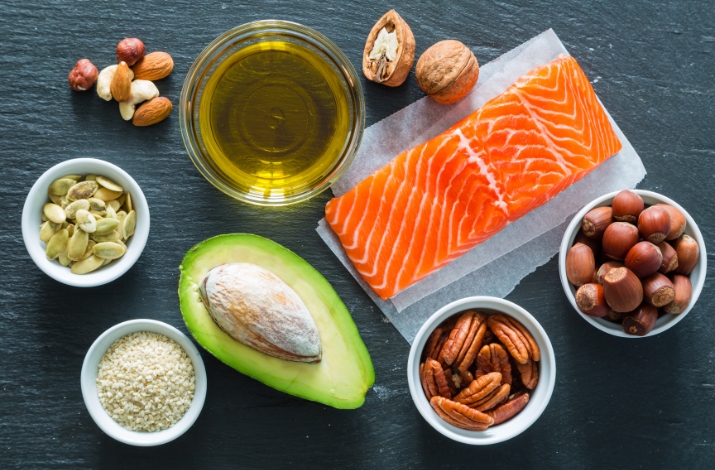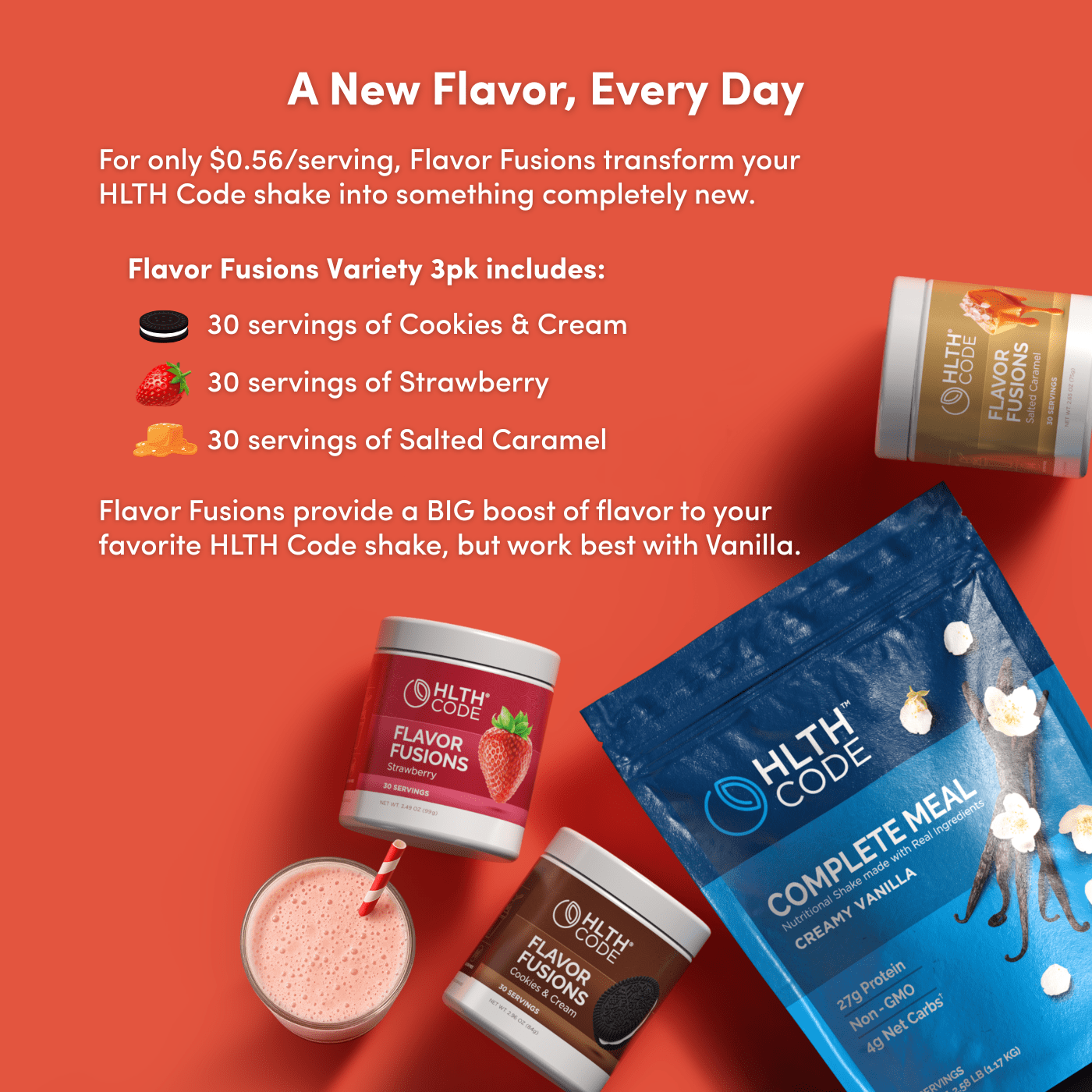Dietary Fats: Great for the Gut!

In recent years, the understanding of gut health and its profound impact on overall well-being has expanded significantly. Among the various, complex factors that influence gut health, dietary fats have gained particular attention. Contrary to conventional beliefs associating fats with negative health outcomes, emerging research shines a welcome light on the diverse roles of different types of fats in nurturing gut health. This article delves into the multifaceted benefits of dietary fats, including short-chain, medium-chain, long-chain, and saturated fats, highlighting their pivotal role in maintaining a balanced and resilient gut microbiota.
Short-Chain Fats:
Short-chain fatty acids (SCFAs), such as acetate, propionate, and butyrate, are metabolites produced by gut microbes during the fermentation of dietary fibers. These compounds serve as crucial energy sources for colonocytes, the cells lining the colon, thereby promoting gut epithelial integrity and function. The shortest-chain fatty acid, acetic acid, is commonly found in apple cider vinegar.
Butyrate also stands out for its remarkable array of beneficial effects on gut health. Numerous studies have highlighted the anti-inflammatory properties of butyrate, which help mitigate gut inflammation and protect against inflammatory bowel diseases (IBD) like Crohn’s disease and ulcerative colitis1. Additionally, butyrate plays a pivotal role in regulating immune responses within the gut, fostering a balanced immune environment that wards off pathogens while preserving tolerance to beneficial microbes2.
Medium-Chain Fats:
Medium-chain triglycerides (MCTs), commonly found in coconut oil and dairy products, possess unique properties that distinguish them from long-chain fatty acids. Due to their shorter carbon chain length, MCTs are rapidly absorbed and metabolized, serving as readily available energy sources for the body.
Research suggests that MCTs exhibit antimicrobial properties, effectively combating harmful pathogens like Clostridium difficile and Escherichia coli in the gut3. Moreover, MCTs have been implicated in modulating gut microbiota composition, promoting the growth of beneficial bacteria while suppressing the proliferation of pathogenic strains4. By fostering a balanced microbial ecosystem, MCTs contribute to overall gut health and resilience.
Long-Chain Fats:
Long-chain fatty acids, including omega-3 and omega-6 fatty acids, are essential components of cell membranes and play pivotal roles in various physiological processes. While the balance between omega-3 and omega-6 fatty acids is crucial for optimal health, emerging evidence underscores the significance of omega-3 fatty acids, particularly eicosapentaenoic acid (EPA) and docosahexaenoic acid (DHA), in supporting gut health.
Omega-3 fatty acids possess anti-inflammatory properties, exerting protective effects against intestinal inflammation and associated conditions such as IBD5. Furthermore, EPA and DHA serve as precursors for specialized pro-resolving mediators (SPMs), lipid-derived molecules that orchestrate the resolution of inflammation and promote tissue repair within the gut6. By facilitating the resolution of inflammation, omega-3 fatty acids contribute to gut homeostasis and mitigate the risk of chronic inflammatory disorders.
Saturated Fats:
Saturated fats have long been vilified for their purported (yet extremely misunderstood) role in promoting cardiovascular disease and metabolic disorders. However, recent research challenges this conventional wisdom, suggesting that the effects of saturated fats on gut health are more nuanced than previously thought.
Evidence indicates that certain saturated fatty acids, such as lauric acid found in coconut oil, exhibit antimicrobial properties that help maintain a healthy gut microbiota7. Moreover, saturated fats play a crucial role in supporting the integrity of the gut epithelium, thereby enhancing barrier function and reducing the risk of intestinal permeability, commonly referred to as “leaky gut“8.
Conclusion:
In conclusion, “eat the rainbow” of dietary fats, encompassing short-chain, medium-chain, long-chain, and saturated fats, as they exert multifaceted benefits to gut health. From the production of short-chain fatty acids that nourish colonocytes to the modulation of gut microbiota composition and the resolution of inflammation, dietary fats play indispensable roles in maintaining a balanced and resilient gut ecosystem.
As our understanding of the intricate interplay between dietary fats and gut health continues to evolve, incorporating a diverse array of fats into our diet remains crucial for promoting optimal gut function and overall well-being. By embracing the nuanced roles of fats in gut health, we can unlock new avenues for therapeutic interventions and dietary strategies aimed at fostering a harmonious relationship between our bodies and the trillions of microbes residing within our gut.
References
- Smith PM, Howitt MR, Panikov N, et al. The microbial metabolites, short-chain fatty acids, regulate colonic Treg cell homeostasis. Science. 2013;341(6145):569-573.
- Arpaia N, Campbell C, Fan X, et al. Metabolites produced by commensal bacteria promote peripheral regulatory T-cell generation. Nature. 2013;504(7480):451-455.
- Peng L, He Z, Chen W, et al. Medium-chain triglyceride enhances intestinal mucosal integrity through the regulation of intestinal mucosal immune response and microbiota composition in weaning piglets. ACS Omega. 2020;5(10):5154-5162.
- Deng X, Yan X, Han D, et al. Characterization of the gut microbiota in the golden takin (Budorcas taxicolor bedfordi). AMB Express. 2021;11(1):36.
- Ananthakrishnan AN, Khalili H, Konijeti GG, et al. Long-term intake of dietary fat and risk of ulcerative colitis and Crohn’s disease. Gut. 2014;63(5):776-784.
- Serhan CN. Pro-resolving lipid mediators are leads for resolution physiology. Nature. 2014;510(7503):92-101.
- Shilling M, Matt L, Rubin E, et al. Antimicrobial effects of virgin coconut oil and its medium-chain fatty acids on Clostridium difficile. J Med Food. 2013;16(12):1079-1085.
- Desai MS, Seekatz AM, Koropatkin NM, et al. A dietary fiber-deprived gut microbiota degrades the colonic mucus barrier and enhances pathogen susceptibility. Cell. 2016;167(5):1339-1353.e21.
This article is for informational and educational purposes only. It is not, nor is it intended to be substitute for professional medical advice, diagnosis, or treatment and should never be relied upon for specific medical advice.




















